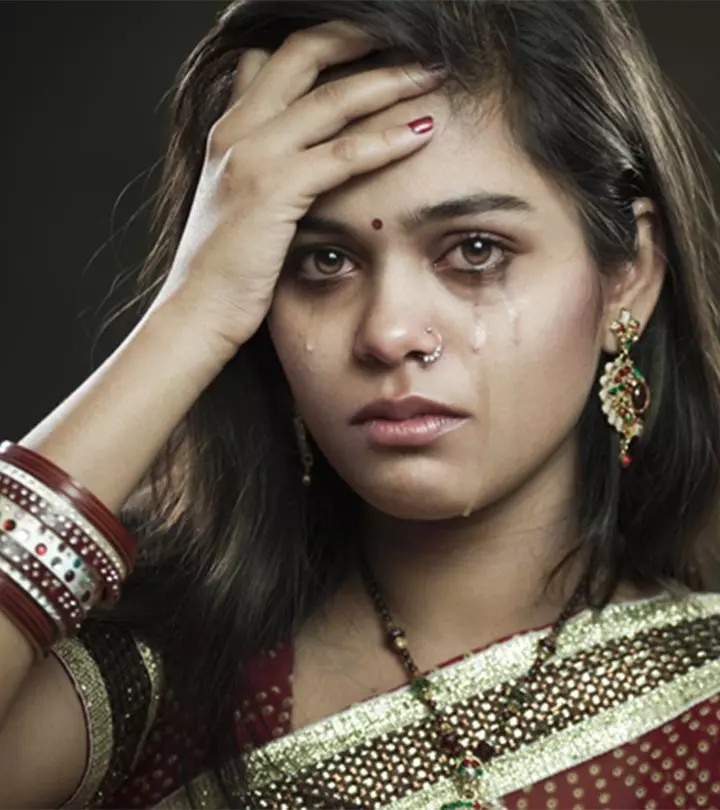
Image : iStock.
You have to wonder, is India really that notorious when it comes to the treatment of daughters-in-law? We’ve all had varying experiences. Some of us can recall mothers-in-law who were affectionate and respectful while others can summon back memories of mistreatment, abuse, psychological and even physical torture that could bring tears to a grown man.
The domestic situation in India was so out of hand at a point that the Supreme Court had to get involved and proclaim that a daughter-in-law cannot be treated as a housemaid! How can such archaic beliefs and practices still have a place in the liberal 21st century, is a question that resonates with most Indians. According to a Mumbai-based counselor and psychiatrist, the following social detriments are responsible for the unhappiness of most Indian brides:
1. Being labeled an outsider
Indian families traditionally expect their sons to care for the aging parents, an onus that befalls upon the new bride immediately regardless of whether she has adjusted to her new environment or not. Yet, at the same time, several families believe there is nothing wrong in their discussing family matters without including their daughters-in-laws for they would fail to understand the family issues.
2. No guidance during the initial adjustment
Getting accustomed to a new home takes time, yet Indian daughters-in-law are expected to adapt to their transition in a matter of a few days. This could lead to something called as ‘adjustment disorder’ where a bride suffers significant levels of anxiety, depression, fear and sadness if her phase of adjustment fails. The treatment often requires a woman to take medication. Unfortunately, most in-laws are unaware of these consequences and fail to guide the daughter-in-law through her adjustment phase. To make matters worse, some new brides are often persuaded to quickly become mothers to make everything all right!
3. Dowry demands
Unfortunately, this archaic social custom is still prevalent in ‘modern’ day India. According to data provided by the National Crime Records Bureau, India has suffered 24,771 deaths related to dowry harassment in the last four years. Though demanding dowries is illegal in India, the custom is still practiced covertly and even openly regardless of how powerful or rich the family may be.
4. Separation anxiety
Many times a bride’s in-laws may suffer from separation anxiety from their son. This may sprout from the fact that the parents would feel alienated after the bride begins taking care of her husband’s everyday needs. This upsets parents who associate the change with their daughter-in-law.
5. Blood is thicker than water
There seems to be a striking contrast in the treatment meted out to a daughter-in-law versus a son-in-law. If the in-laws have a daughter who is married, there is deference and respect given to their son-in-law. Meanwhile, the daughter-in-law may have to deal with unfair comparisons with her sisters-in-law on a daily basis, thereby producing severe pressure and anxiety.
6. A husband who turns a blind eye
In many cases, men will take longer to mature and comprehend the needs and complications of their marriage. They won’t possess the understanding of the social and emotional responsibilities they’re required to fulfill towards their brides and hence, tragically, they can never stand up and defend their wives.
Although the reasons cited above may be the major justifications for the turbulence witnessed in most Indian households, it is not all doom and gloom for there are ways to prevent this. Considering pre-marital counseling, having a husband make efforts to mature, allowing a lengthier adjustment phase and possessing good communication are just some of the ways to create that (not so) mythical loving dynamic you always desired with your in-laws!












